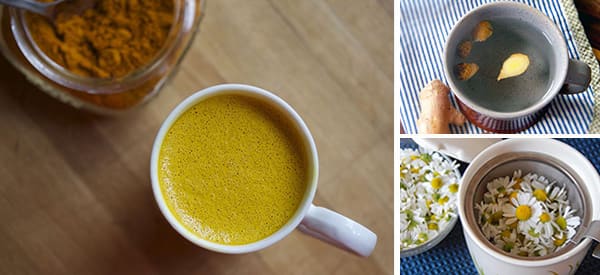
7 Herbal Teas That Fight IBS
Anyone that has IBS knows that it isn’t pleasant to live with. There are many symptoms of IBS, which can cause pain and severe discomfort. While there are plenty of over-the-counter options to reduce the symptoms, they may not work well or may even lead to side effects.
Thankfully, there are some natural remedies to try. Herbal tea is incredibly beneficial, as it is warm, soothing, and easy to make. All you have to do is drop about two teaspoons of your choice of herb into boiling water, let it steep for a few minutes and you are ready to reap the benefits.
1. Peppermint (Mentha Piperita)
Peppermint is one of the most recommended teas for those suffering from IBS. It has a lot of beneficial properties, one of the most important being the reduction of pain or, at least, the severity of pain.
Like peppermint oil, which is also often used for those with IBS, it can help with bowel spasms and reduces toxicity in the body.
One potential side effect is heartburn, so if you start noticing symptoms, it may be best to reduce your consumption. These symptoms are most common when using peppermint oils, so peppermint tea can be a good replacement as the risks are much lower and there are higher benefits.
Peppermint tea is also fairly easy to find in a store, but again, you can also just grow the plant on your own. You would just pick the leaves, let them dry, and then brew them in your tea. You can use fresh leaves but it won’t be quite as strong.
2. Fennel (Foeniculum vulgare)
Fennel works well in accompaniment to the medicine that doctors may prescribe to reduce symptoms, but it also works amazingly on its own.
It helps relax the intestine muscles, which can alleviate pain and discomfort. It also aids in gas reduction. Many people who have used fennel tea for IBS have reported reduced symptom severity and improved quality of life.
The tea is simply made from dried fennel seeds placed in boiling water.
Fennel is another item that may not be allowed on a low FODMAP diet, so check with your doctor about your food plan before trying this option. It’s also not ideal for those who are pregnant. If you have other medical conditions, you may also want to talk to your doctor first, as it can react negatively to medication.
3. Chamomile (Matricaria chamomilla)
Chamomile, in addition to having properties that help you relax and sleep, has benefits for the gut as well. Since gut issues can be caused by stress, you may find that drinking chamomile helps to reduce some of your symptoms. This flower is also able to reduce spasms.
Other benefits of chamomile tea are that it soothes upset stomachs, combats gas, ulcers, and colic. In studies on those with IBS, it has also been shown to reduce inflammation, nausea, bloating, and pain, and lead to more regulated bowel movements.
Chamomile is a very popular herb, and you can find it relatively easily in any store. However, if you grow the flowers, you simply need to pinch off the heads and let them dry before using them in hot water.
4. Turmeric (Curcuma longa)
Turmeric alleviates pain and inflammation. It is also full of antioxidants that protect your cells against free radicals. Even for those that don’t suffer from IBS, turmeric is known as a superfood due to its antioxidant and anti-inflammatory properties.
It also relieves stomach pain and discomfort while encouraging the growth of good bacteria in the gut, allowing it to function properly.
There are plenty of pre-made tea packets out there with turmeric, but you can also add about two teaspoons of it in any form (ground, powdered, or grated) into tea. If you are using powder, make sure to stir thoroughly, or else you will get balls of powder still floating in your drink that are strong and bitter.
5. Ginger (Zingiber officinale)
Ginger is said to help reduce nausea and inflammation, making it useful for people with IBS.
Furthermore, animal studies show that it reduces the amount of water drawn into the bowel, as well as constipation and diarrhea. These advantages make life easier for those suffering from IBS symptoms.
You can even mix ginger with turmeric in your tea to get the benefits of both in one cup. Some pre-made teas even include both for ease. But to make your own, just cut or grate some ginger root into boiling water. For additional benefits, you can add lemon too.
6. Lavender (Lavandula)
Lavender has never specifically been tested for those with IBS, so the exact benefits aren’t known. However, based on its family, it should be very promising. It is part of the mint family, the same as peppermint.
It is already known to be soothing and aid in mental health problems like depression and anxiety. It also is known to have camphor, which reduces bowel spasms. French lavender is considered to be one of the better options. However, you can also grow your own lavender and use that.
You simply put some of the dried flowers into boiling water and enjoy.
7. Rooibos (Aspalathus linearis)
Also known as red bush tea, rooibos is thought to be good for those with IBS. Though it has never directly been tested with IBS, it was tested for Colitis which is a similar health problem.
In those tests, rooibos was said to decrease gut inflammation. It is also low in caffeine and tannins, so it makes a pretty good replacement for black tea if one has to switch.
Because Rooibos is such a popular base tea, there are numerous blends available online and in stores. With so many options, you can find a fun tea flavor that you enjoy while also providing health benefits.
Since many people with IBS tend to have problems with certain foods making their gut even worse, it is always recommended to make sure you can have these teas by clearing it with your doctor first. Otherwise, you may end up with worse symptoms.
How To Grow Your Own Lavender From Cuttings
5 Warning Signs You Have IBS (Video)
10 Flowers You Did Not Know You Can Pickle

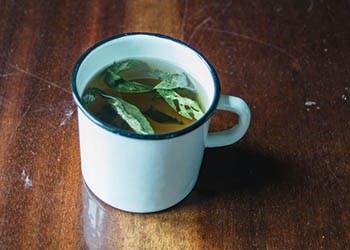
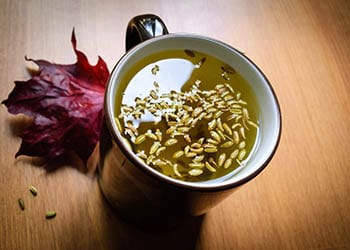
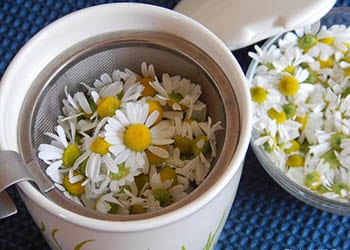
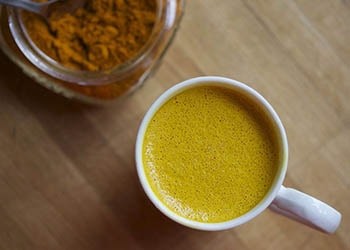
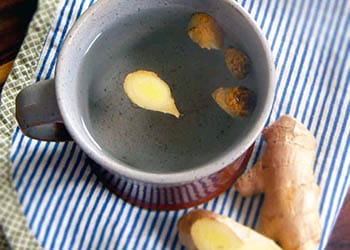
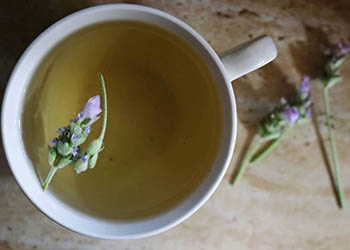
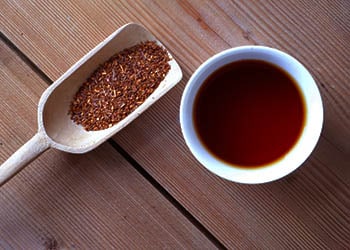

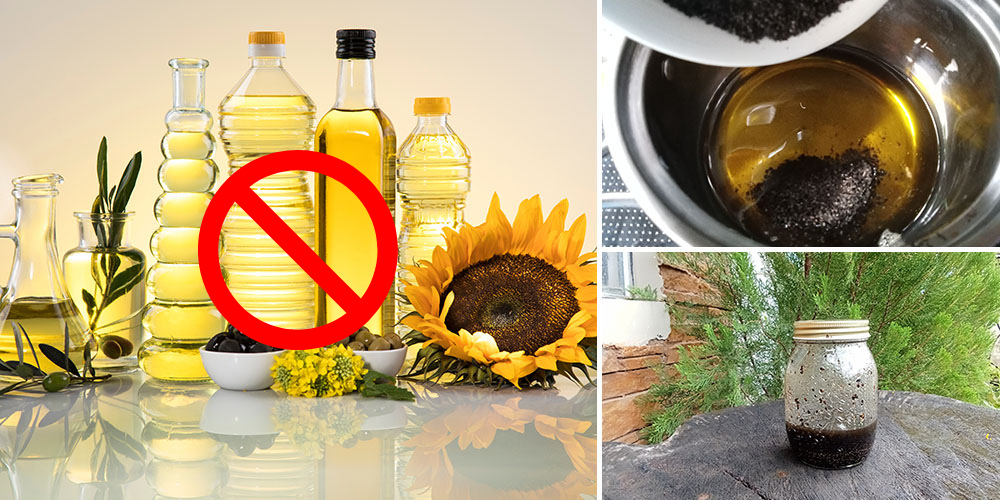


What is IBS?
Hello Chuck,
You can read more information about IBS in our article below:
https://thelostherbs.com/5-warning-signs-you-have-ibs/
Many blessings and good health!
Irritable bowel syndrome
Turmeric needs two things to be able to be utilized by the body: black pepper and an oil of some kind. Otherwise, the turmeric won’t be used by the body at all. A small amount of black pepper and some form of oil in the recipe will make the turmeric used by the body.
Why? I cant find anything on what you say. Thanks
Hello Mr. Ben,
Black pepper is hugely beneficial to add to any dish when you use turmeric. That’s because the piperine enhances the absorption of curcumin by up to 2,000%.
Many blessings and good health!
I am 77 now + I have had IBS since I was 14 years old. No doctor has ever helped me ever. All they had for me is meds, procedures, + hopelessness. When asked what foods to avoid he said don’t drink coffee. Not until I did my own research + make drastic dietary changes + not mixing certain foods together. Peppermint has been fantastic for me + I still take it almost daily. I hardly have flare-ups like so many people have. I gave up so many foods that have caused me tremendous pain. I haven’t needed to go to E.R. since 2021. I also used Lifewave X39 Stem cell patches everyday. No more acid reflux, no more IBS for me. Amen. I am thrilled not to live in pain on a daily basis.